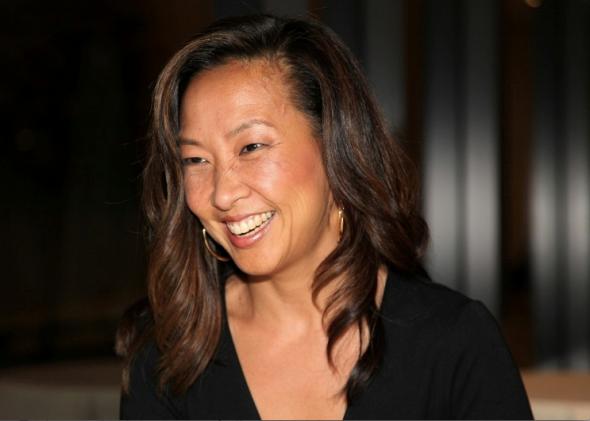I applaud this research as it provides an appropriate framing of success. While so many groups begin at the proverbial "bottom," that bottom is demonstrably different across groups. Not unlike other groups, it's clear that Mexicans immigrants aspire to higher educations.
"Asian American exceptionalism" is also a myth that is harmful to all groups, Asian Americans, included. "Stereotype promise" can indeed help some students achieve in schools; the downside though is becoming an "outlier" within one's own group, creating stressful environments for others.
Along with this re-framing of the achievement debate—oftentimes cast psychologically in terms of "grit" and "impulse control," this research will help dispel the myth that "Mexican American parents don't care" about their children's education.
My own research in Subtractive Schooling concurs with these finding and further illuminates why generational differences in student achievement and attitudes toward schools exist.
Angela Valenzuela
Starting From the Bottom: Why Mexicans are the Most Successful Immigrants in America
A new study from UC Irvine and UCLA challenges our definition of success

Photo by Gareth Davies
Who’s more successful: The child of
Chinese immigrants who is now a prominent attorney, or a
second-generation Mexican who completed high school and now holds a
stable, blue collar job?
The answer depends on how you define success.
In fact, according to a study by University of California, Irvine,
Sociology Professor Jennifer Lee and UCLA Sociology Professor Min Zhou,
contrary to stereotypes, Mexican-Americans are the most successful
second-generation group in the country. The reason is simple: The study
considered not just where people finished, but from where they started.
The report serves as counter-point to arguments raised by Amy Chua, a
Yale Law School professor better known as the Tiger Mom. In a new book,
The Triple Package, Chua and her husband, Jed Rubenfeld, argue that
some groups—namely Chinese, Jews, Cubans, and Nigerians—are more
successful than others because they possess certain cultural traits that
enable them to be.
In a nutshell, Chua’s “Triple Package” includes: a cultural
superiority complex, impulse control, and insecurity. Combined, the
authors assert, these traits drive the groups to succeed within a
broader American culture that is comparatively lackadaisical. They base
their argument on an analysis of test scores, educational achievement,
median household income, and other factors.
The UC study, however, argues that it’s not any specific cultural
trait that makes groups like Chinese-Americans more successful than
others. Lee and Zhou say both Chinese-American and Mexican-American
parents highly value education. Most parents do. But the reason
Chinese-Americans get ahead is because they start ahead. Way ahead, in
many cases.
The study, called “The Success Frame and Achievement Paradox: The
Cost and Consequences for Asian-Americans,” looked at Chinese-,
Vietnamese-, and Mexican-Americans in Los Angeles whose parents
immigrated to the U.S. At first glance, the study’s findings seem to
reinforce claims made by Chua and her supporters: Children of Chinese
immigrants far exceeded other groups when it came to educational
outcomes. Sixty-four percent of Chinese immigrants’ children graduated
from college, compared to 46 percent of native-born whites in L.A. Of
the Chinese-American college graduates, 22 percent went on to attain
graduate degrees.
Asian-American kids, the study found, have good role models and extra
help from family and community when it comes to schooling. They also
benefit from well-educated parents who put them in good schools and push
them into high-income, high-status professions, including medicine,
pharmacy, engineering, and law.
Mexican-Americans had the lowest level of educational attainment in
the study. Eighty-six percent had graduated from high school, compared
to 100 percent of the Chinese-Americans, and just 17 percent had
graduated from college.
Fundamental to Chinese-Americans’ overall level of success is that
their parents are already highly educated. Chinese immigrant parents
were by far the most highly educated in the study—in L.A., 60 percent of
Chinese immigrant fathers and 40 percent of Chinese immigrant mothers
had a bachelor’s degree or higher. According to a separate study by Pew
Research Center, 61 percent of recent Asian immigrants between the ages
of 25 and 64 had a bachelor’s degree, which is more than double the U.S.
average.
Meanwhile, Mexican-Americans’ high school graduation rate was more
than double that of their parents, and their college graduation rate
more than doubled that of their fathers and tripled that of their
mothers. According to Lee, the results are clear: When success is
measured as progress from generation to generation, Mexican-Americans
come out on top.
The study found that Mexican parents strongly value education, but
that their frame of academic achievement is less exacting than
Chinese-American parents. They emphasize finishing high school, possibly
going to college—though not necessarily an elite one—and having some
kind of career. Mexicans aspiring to higher education, the study found,
look toward good colleges in the L.A. area, and often settle on
community colleges in their neighborhoods. Because many Mexican parents
have a relatively low level of education, they were not as well-equipped
to help their children succeed as Chinese-American parents.
“My mom never said to me to, ‘Get an A.’ She said, ‘Do your best,’”
Nadia, a 28-year-old second-generation Mexican-American who is working
toward her master’s in education, told the researchers. Nadia was the
first in her family to go to college and pursued a graduate degree even
though her parents didn’t understand the point of staying in school
beyond a bachelor’s degree.
Lee found that second-generation Mexican-Americans who attained the
highest education outcomes had access to public resources at their
schools such as zero periods, College Bound programs, and AP classes, in
which students learned how to apply for colleges. Many also had a
teacher, guidance counselor, or coach who encouraged them along the way
and guided them through the college application process.
Consider Camille, one of the study’s subjects. A 27-year-old
second-generation Mexican woman who earned a bachelor’s and master’s
degree from the University of Southern California, Camille’s parents
arrived in the U.S. as unauthorized immigrants and worked in garment
factories. Her parents wanted her and her twin sister to attend college
but had no way to help them.
After high school, the twins attended a local community college,
where Camille met a guidance counselor who guided her through the
admissions process to a four-year college. After Camille was accepted by
USC, the counselor visited her parents to persuade them of the merits
of allowing their daughter to leave home for school. “She really went
above and beyond,” Camille said.
The point of the study, Lee says, was to reframe the debate about what success means.
“We wanted to understand how parents’ position and parents’
immigration status, how their level of education, how all of these
factors then shape how the second generation frames success,” she says.
“We really wanted to reframe the debate about success.”

Photo by Zócalo Public Square
Lee says that in the U.S., Asian-Americans benefit from a broad
cultural belief in “Asian-American exceptionalism”—that Asians are
inherently brighter and more hard-working than others—while other
groups, such as Mexican-Americans and African-Americans, are subjected
to negative stereotypes.
In elite U.S. universities, Asian-Americans make up a
disproportionate percentage of the student population. Although they
comprise just 5.5 percent of the American population, Asian-Americans
account for just under one-fifth of the entering class at schools such
as Harvard, Yale, and Princeton. At University of California, Berkeley,
they make up 43 percent of the student body, but they are just 13
percent of the state’s population. Chinese parents also define success
narrowly and invest their resources in their sons and daughters
achieving it. (This is also, Lee says, why you don’t see many
Chinese-Americans in careers such as writing, acting, fashion, and art.)
Lee argues that Asian-American students gain from this “stereotype
promise”—the idea that being viewed through the lens of positive
stereotypes can serve as a performance booster. In her research, she has
found that positive stereotypes about Asian-Americans are reinforced in
schools by teachers, guidance counselors, and administrators. In some
cases, Asian students with mediocre grades in junior high were placed in
advanced classes in high school regardless. (Stereotype promise can
have a negative effect as well; Asian-Americans who are not high
achieving reported feeling like outliers.)
Comparing different ethnic groups and their places in society, Lee
often uses a baseball analogy. Asian-Americans, she says, tend to end up
on the third base of life. But “their parents are so highly-educated,
they almost start the race to get ahead on third base,” Lee says. “But
all we see is that they’ve made it to third base. That’s not to say they
don’t work hard to get there. They do. But they have certain advantages
that other groups don’t have.”
Mexican-Americans, Lee says, are starting from behind home plate. “In
the sense that they come [to the U.S.] much more poorly educated than
the average American, they have a lot more catching up to do just to get
to where the average American is. For Mexican-Americans, the fact that
their children make it to first or second base is enormous progress.”
Mitch Moxley has written for publications including GQ, the Atlantic, and Grantland, and he is the features editor at Roads & Kingdoms. Follow him on Twitter.
No comments:
Post a Comment